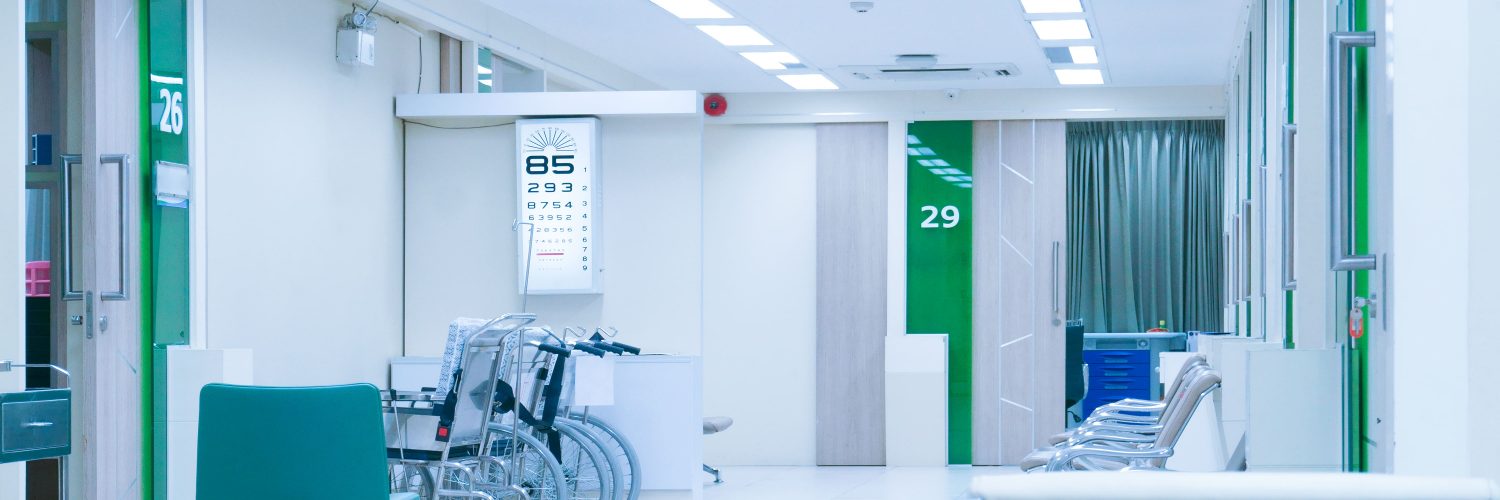In times of war and terrorist attacks, psychotrauma first responder units play a crucial role in emergency healthcare services. These units consist of social workers and other mental health professionals whose main responsibility is to alleviate the psychological impact on victims and witnesses of these tragic events. They provide support by accompanying and treating individuals facing traumatic shock and acute distress. The primary goal is to address these immediate psychological challenges to minimize the risk of long-term traumatization and the development of post-traumatic stress disorder (PTSD).
Poskim are frequently asked about the permissibility of psychotrauma first-response units violating Shabbos to reach the site of an attack and assist the victims of trauma. A parallel concern, which is relevant even in peacetime, revolves around the permissibility of a psychiatrist or mental health professional answering phone calls from a patient experiencing a panic attack on Shabbos.
It is important to state at the outset of our discussion that our modern understanding of mental health concerns differs from that of the classic Halachic works of previous generations. Rabbi Dr. Yaakov Freedman, a distinguished psychiatrist, emphasizes that from a medical standpoint, panic and severe anxiety do not endanger a person’s life, provided that they have no psychiatric comorbidities and that the person is otherwise healthy. Although the symptoms of a panic attack may be similar to the symptoms of a myocardial infarction, and to rule out a heart attack, it is advisable to send a person to the emergency room immediately the first time they experience a panic attack, the symptoms of a panic attack are not dangerous. Anyone with a panic disorder who is under the treatment of a mental health professional does not need to be concerned about physical harm because of their symptoms. One of the key components of treating panic disorder is helping the patient realize that the bodily experiences are not indicative of any danger and are nothing more than the body’s response to anxiety.
With that introduction, we can examine some of the Halachic sources that consider intense anxiety as life-threatening. A classic example of this concern is the Halacha that when treating a patient whose life is endangered, one should even desecrate Shabbos to ensure that he or she is not anxious. This is clear from the Gemara in Shabbos 128b and Shulchan Aruch O.C. 330:1 that permit lighting a candle on Shabbos to assuage the fear of a Yoledes (parturient) who fears that her care will be compromised due to the darkness. One may do so even if her fears have no medical basis and even if she is blind! Moreover, one needn’t even consult a medical expert, which is quite unlike the Halacha of a person who is sick on Yom Kippur where we must consult a doctor to decide whether the patient should be permitted to eat. Tosfos (ad. loc.) explain that this is because “a Yoledes is more likely to be endangered by fear… than a sick person will be endangered by hunger.”
This is also explicitly stated by the Bi‘ur Halacha (328) who discusses desecrating Shabbos on account of a patient who claims that it is necessary when his physician disagrees. The Halacha is that one pays no heed to the patient “unless there is a concern that he will lose his mind when he sees that they are paying no attention to him.”
Fear can be a cause of death for those who are dangerously ill. However, this is not necessarily true of somebody who is physically well.
The Gemara in Yoma (84b) cites a Beraisa:
The Rabbis taught: One may engage in Pikuach Nefesh on Shabbos, and somebody who does so with alacrity is praiseworthy, and he needn’t seek permission from Beis Din. How so? … If he sees that a child is locked behind a door, he may break it down to extricate the child.
Rashi adds: “If a door is locked – and the child is startled” – in other words, if the child is frightened or startled, it is a matter of Pikuach Nefesh to extricate him from the locked room. Many Acharonim contend that according to Rashi one may only desecrate Shabbos and break the door down if the child is frightened. If the child is calm at that moment, there is no basis for desecrating Shabbos, even if one fears that the child will later become frightened.
The Gemara explains that the Chidush of the Beraisa is that one is not obliged to attempt to calm the child by other means and he may break down the door immediately. This also supports the conclusion that one may only desecrate Shabbos if the child is already frightened, for otherwise, the Gemara should have said that the Beraisa conveys a much greater Chidush[1] that one may even break the door down if the child is calm at that moment!
Other Rishonim[2] who cite this Halacha also imply that one may only break the door if the child is frightened. They write, “A child who is crying inside a house – one may break down the door and extricate him” which implies that the child is already afraid. However, the Rambam (Hilchos Shabbos 2:17, quoted by the Magen Avraham and Mishna Berura 328:13) appears to differ:
If a door is locked in front of a child, one may break the door and extricate him, lest the child be startled and die.
According to the Rambam, one is justified in breaking down the door while he is still calm to prevent him from becoming frighted. The same is implied by other Rishonim.
Does this ruling only apply to a small child? R’ Yaakov Emden (Mor u’Ketzia on the Shulchan Aruch ibid.) rules that it applies to any child who “needs his mother”, which is below the age of six[3]. However, if there is any concern that a child of an older age will be extremely frightened, “One should be lenient in [these] matters that may be a matter of Pikuach Nefesh”.
Rav Wosner zt”l (Shevet haLevi 8:75) maintains that this Halacha also applies to older children:
Nevertheless, there is some doubt if this only applies to Tinokos, which is the example of the Gemara, in other words, very young children, or even to older children. There is room to make a distinction in this regard and require that they [older children] feel frightened, as Rashi holds, and not [extricate them due to the concern] that they may become frightened if they are not yet frightened.
According to Rav Wosner, even if this Halacha applies to older children, we do not desecrate Shabbos unless the child is frightened. Although he notes (earlier in that Teshuva) that the Magen Avraham and Mishna Berura quote the Rambam who does not require that the child must be frightened to justify desecrating Shabbos, we are still only lenient to that degree for very young children.
Rav Wosner continues:
We learn from this Halacha that feeling greatly frightened may be a matter of Pikuach Nefesh. It is obvious that this is also true of adults. We find several accounts in Chaza”l that relate how abrupt emotional reactions can cause a person’s death. Therefore, although a locked door is not a cause of fright for adults, in other cases where there are signs that an adult is greatly frightened, it is a Mitzva to desecrate Shabbos on his account.
Rav Shlomo Zalman Auerbach zt”l (Minchas Shlomo 1:7) appears to differ:
If a person is enormously wealthy and a fire breaks out in his estate, though extinguishing it would only be a Melacha she’Eina Tzricha leGufa, it is nevertheless forbidden. Though his distress at seeing the fire devour his estate is profound, for in one instant he goes from enormous wealth to abject poverty, and there is now a concern that debtors will pursue him and unlawfully embarrass him, and perhaps he will even take ill and die from the terrible distress…
See also the Kuntres Over Orei’ach 334 by the Aderes zt”l[4] who discusses rescuing Kisvei Yad (manuscripts of Divrei Torah and Chidushim) [from a fire on Shabbos] who writes: “It could be said that it may be a matter of Pikuach Nefesh if a person invested enormous effort in them [his Kisvei Yad] all of his life – for the grief may cause him to take ill, God forbid. I heard this about the Gaon R’ Avraham Charlap, the Av Beis Din of Bialystok, whose holy writings were accidentally destroyed, and he did not live for long afterward due to terrible grief.
[Despite all of the above,] it is still forbidden to extinguish the fire… on account of an enormous loss of money. Though the pain and distress are enormous, and he would gladly cut off his arm if doing so could save his wealth, it is nevertheless forbidden to extinguish the fire. This is because physical pain is different…[but] a person who has taken these events to heart and is in great distress – we cannot take that into account as it is considered as if he is killing himself, not the fire.
Rav Shlomo Zalman did not permit desecrating Shabbos to save a person from the trauma of seeing his wealth go up in smoke before his eyes[5]. Though this level of distress is likely equivalent to that considered by the Poskim to be Pikuach Nefesh (and therefore a justifiable reason to desecrate Shabbos), in this case, this would not be justified as he should have strengthened his Bitachon and not allowed himself to be so traumatized. As such, the mental anguish is not due to the fire but is considered his fault.
Rav Avigdor Nebenzahl Shlit”a (Yerushalayim b’Mo’adeha, Shabbos 2, p356) notes that he found this ruling of Rav Shlomo Zalman immensely surprising. Even though this person should have had more faith in Hashem, ultimately his life is endangered, and Shabbos prohibitions should be set aside to save him. He attests that Rav Shlomo Zalman retracted this ruling in his later years. (See also Shemiras Shabbos Kehilchasa 41, footnote 8 & Shulchan Shlomo 334:25, footnote 33)[6].
In an as-yet-unpublished Teshuva, haGaon Rav Asher Weiss Shlit”a also disagrees with Reb Shlomo Zalman. He argues that we only find that Halacha insists that an individual accept full responsibility for regulating their psychological state in the Halachos of Sukka, where an individual is required to self-regulate to make their stay in the Sukka a pleasant one. However, regarding Pikuach Nefesh, we do not cast the entire responsibility for emotional self-regulation on the individual; after all, we even desecrate Shabbos to prevent an individual from committing suicide.
Rav Asher discusses the Machlokes Rishonim (see Beis Yosef O.C. 306) as to whether one may desecrate Shabbos to rescue a Jewish girl who has been kidnapped by Christians to be converted. None of the Rishonim consider whether the father’s distress should be a matter of Pikuach Nefesh. Why not?
In truth, this poses no difficulty whatsoever, since one cannot compare universal Halachic guidelines to the response one offers to an individual regarding a specific case. [In the case of the latter], one must consider, clarify, and investigate all the details and repercussions of the case in question. For this reason, it seems that when ruling about a house that caught fire, Chazal only considered the [universal factor of] financial loss, since all fires destroy property. Regarding this factor they established the Halacha – they were not drawn into investigating the implications of the fire on a person’s mental health, since that is an entirely different discussion in which one must distinguish between a large house and a small house, a wealthy person and a person, and so forth. The same applies to somebody who is informed that his daughter was kidnapped to be converted: The Poskim only debated [the question of] whether it is permissible to transgress a Torah prohibition to spare her from transgression. They did not debate the implications on people’s mental health since that is an entirely different discussion. However, when establishing practical Halachic guidelines for dealing with potential trauma, it is impossible to ignore the fact that intense anxiety can endanger life.
Rav Asher concludes that traumatic shock is considered potentially life-threatening and Chillul Shabbos is warranted to treat it:
To our great sadness, there have been cases in which severely traumatic events have led people to insanity, to the extent that they have harmed themselves, their children, and even others, sometimes shortly after the event and sometimes at a later time. Various studies evidence the importance of immediate treatment [thus] Pikuach Nefesh can be entertained in this context. However, since it is highly unlikely that life will become endangered, and it is difficult to unequivocally determine how important it is to provide immediate treatment, one must try to minimize Chillul Shabbos d’Oraisa.”
In other words, whenever possible psychotrauma first response units should arrange to be driven to the scene by a non-Jewish driver. However, when this is not possible, they should drive to the scene themselves due to Pikuach Nefesh.
To conclude, Halacha sometimes considers intense anxiety and panic a life-threatening condition. However, one must distinguish between the various presentations. As Dr. Freedman points out, one should desecrate Shabbos the first time somebody experiences panic symptoms that resemble those of a heart attack to rule out the possibility of cardiac arrest.
It is reasonable to say that one should desecrate Shabbos to treat traumatic shock in the wake of a traumatic event if there is significant concern of life-threatening repercussions.
A person in treatment for panic disorder may not desecrate Shabbos to call his psychiatrist if he has learned to manage his symptoms with medicinal or behavioral means. However, if all else fails and he feels that he must urgently contact his psychiatrist, it is reasonable to say that he may make the call and the psychiatrist may answer it (provided that the psychiatrist is confident that his patient will only call in the case of a genuine emergency).
Psychotrauma first response units may desecrate Shabbos to travel to the scene of a catastrophe, may Hashem spare us from any more of them, but they should attempt to enlist the services of a non-Jewish driver.
Since there are further Halachic issues pertaining to the method of travel, arrival at the scene, and conduct at the scene, it is incumbent upon social workers and psychotrauma first responders to seek the counsel of a competent Halachic authority ahead of time.
[1] If the Gemara considers it a Chidush that one needn’t attempt to calm the child by other means it would certainly be a Chidush to say that one needn’t wait to see whether a calm child will remain calm.
[2] Halachos Ketzuvos Shabbos 18 & Piskey Rabbenu Yosef miBamburg 120.
[3] This is the case in Hilchos Eiruvin where a child up until the age of six may be included in the Eruv Techumin of his mother and one needn’t set aside an amount of “two Seudos” for him separately (Shulchan Aruch O.C. 414:2).
[4] R’ Eliyahu Dovid Rabinowitz-Teomim, 1843-1905.
[5] He does not appear to be discussing the long-term impact on his mental health, only his immediate distress.
[6] During Operation Protective Edge (Mivtza Tzuk Eitan) in 5774 (2014), Rav Nebenzahl was asked whether it was permissible to desecrate Shabbos to treat anxiety and panic attacks on Shabbos. He replied that it was permissible if there was any risk that without treatment it would progress to psychosis, and that this applied to people of any age.















Add comment